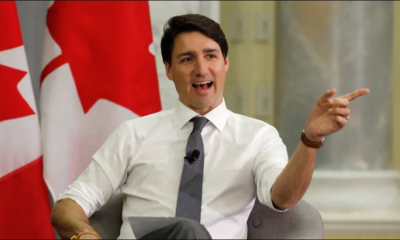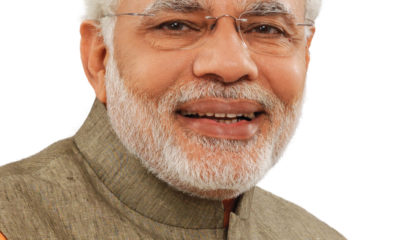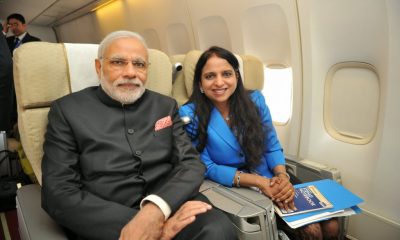World
UN Security Council calls for doubling number of women peacekeepers

United Nations: The Security Council has called for doubling the number of women in peacekeeping operations as part of its efforts to empower women in preventing and resolving conflicts.
In a resolution adopted Tuesday, the Security Council asked Secretary General Ban Ki-moon to come up with a strategy to double the number of women in peace-keeping operations as an important step to achieve its agenda of enhancing the role of women in conflict resolution and prevention, peacekeeping, peace-building.
Currently there are only 4,372 women peacekeeping personnel – a paltry number out of a total of 106,506.
The role of women in peacekeeping has emerged as a major issue at the UN both as an agenda of empowerment as well as for prevention of abuse of women and children who form the majority of civilians peacekeepers are mandated to protect.
At the summit on peacekeeping convened by President Barack Obama last month at the UN, Prime Minister Narendra Modi announced India would provide three additional police battalions with a higher proportion of women personnel.
Participating in the debate after the adoption of the resolution, India’s Permanent Representative Asoke Kumar Mukerji recalled India’s “pioneering role in Liberia, where India became the first UN member state to send an all-female peacekeeping unit.a¿
This illustrates a way to achieve “full and meaningful participation and leadership of women in the decision making processes of conflict prevention, conflict-resolution and post-conflict reconstruction,a¿ which India strongly advocates, he added.
The Security Council resolution also urged the Secretary-General and UN bodies to better integrate gender perspectives and to set targets for hiring and empowering women.
Specifically in the area of peacekeeping, the Security Council asked the peacekeeping and political affairs departments to ensure that women expertise was included in planning and executing peacekeeping missions.
Mukerji said that the agenda of empowering women in conflict resolution, peacekeeping and peace-building would continue to fail unless its members were “able to reflect this perspective into their deliberations while drawing up mandates for peace operations.a¿
“Developing countries must have a greater presence in the permanent membership of this Council,a¿ he said. “Due to this major shortcoming, the elaborate normative framework and the Secretary General’s 7-Point Action Plan on gender-responsive peacebuilding, has not been achieved.a¿
“This is why the existing structure of the Security Council needs early reforms,a¿ he added.
The Security Council should also hold consultations with troop-contributing countries as mandated by the UN Charter, he said.
Continuing India’s critique of the functioning of the Security Council, Mukerji highlighted its failures in dealing with terrorists. “The Council should take the lead in investigating and prosecuting such non-state actors, and not be atrophied by the opaque procedures in its sanctions regimes, which have distorted by hidden vetoes, called technical holds or blocks, permanent members without accountability,a¿ he said.
Earlier this year, China prevented Security Council action on Paksitan’s releasing Lashkar-e-Taiba, commander Zaki-ur-Rehman Lakhvi, who was the mastermind of the November 2008 Mumbai terror attack that killed more than 160 people.
World
Lockdowns in China Force Urban Communities to Defy Censorship and Vent Frustration Online

Shanghai’s rich middle class is leading a wave of online dissent over the strict and prolonged lockdowns imposed in various parts of the country. Chinese internet censorship is struggling as patience is wearing thin in many urban centers, coming up with creative forms of online protests.
Social Media Posts Revealing Lockdown Tension in Shanghai
Drawn-out lockdowns are nothing new in China as authorities insist with the nation’s zero-Covid policy since the start of the pandemic. Currently over This time around, however, metropolitan areas like Shanghai are increasingly difficult to keep quiet, given that its more than 25 million residents have seen weeks of total isolation along with food shortages and many other service interruptions.
Dozens of towns and reportedly over 300 million Chinese citizens have been affected by lockdowns of different severity. As expected, urban netizens have been most outspoken over their difficulties by finding creative ways to get around state censorship and bans placed on topics, news comments and spontaneous campaigns.
Shanghai residents have been using mobile proxies and hijacking seemingly unrelated hashtags to talk about healthcare issues, delivery failures and the overall severity of their situation. The “positive energy” that the Chinese government wants to transmit during the recent prolonged series of lockdowns does not come naturally to those counting food supplies and online censors are working hard to filter words, trending topics and undesired social media sharing.
WeChat groups and message threads are under constant monitoring. Posts questioning the zero-Covid approach have been quickly deleted, including by leading Chinese health experts like Dr. Zhong Nanshan. Video footage is soon censored and protests and investigations are quickly made to disappear.
Where this has not worked, officials have exposed banners with warnings and outright threats like “watch your own mouth or face punishment”, while drones have been patrolling the city skies. Yet, if anything, this has led to further tensions and unspoken confrontation with Shanghai’s educated and affluent middle class.
Creative Online Solutions Harnessing Civic Energy
Announcements by Chinese social media that they would be publishing the IP addresses of users who “spread rumors” have not helped either. Tech industry research has shown that much of Asia’s tech-savvy population has a habit of using mobile proxies and other privacy tools, quickly finding workarounds to browse the internet freely and talk to the world about the hottest topics.
The sheer volume of forbidden posts is already a challenge for the very censorship system, experts explain. Unable to track all trending hashtags, state workers overlook topics that speak about the US, Ukraine or other popular news. Linking human rights elsewhere to their situation, Chinese online dissidents establish their informal channels and “hijack” the conversation to share personal or publicly relevant information about the Covid suppression in their town.
Sarcastic and satirical posts still dominate. Others hope to evade the censors by replacing words from famous poems or the national anthem. One thing is certain – social media, when harnessed with the right creativity, has proven its ability to mount pressure on the government in even some of the most strictly controlled tech environments like China.























